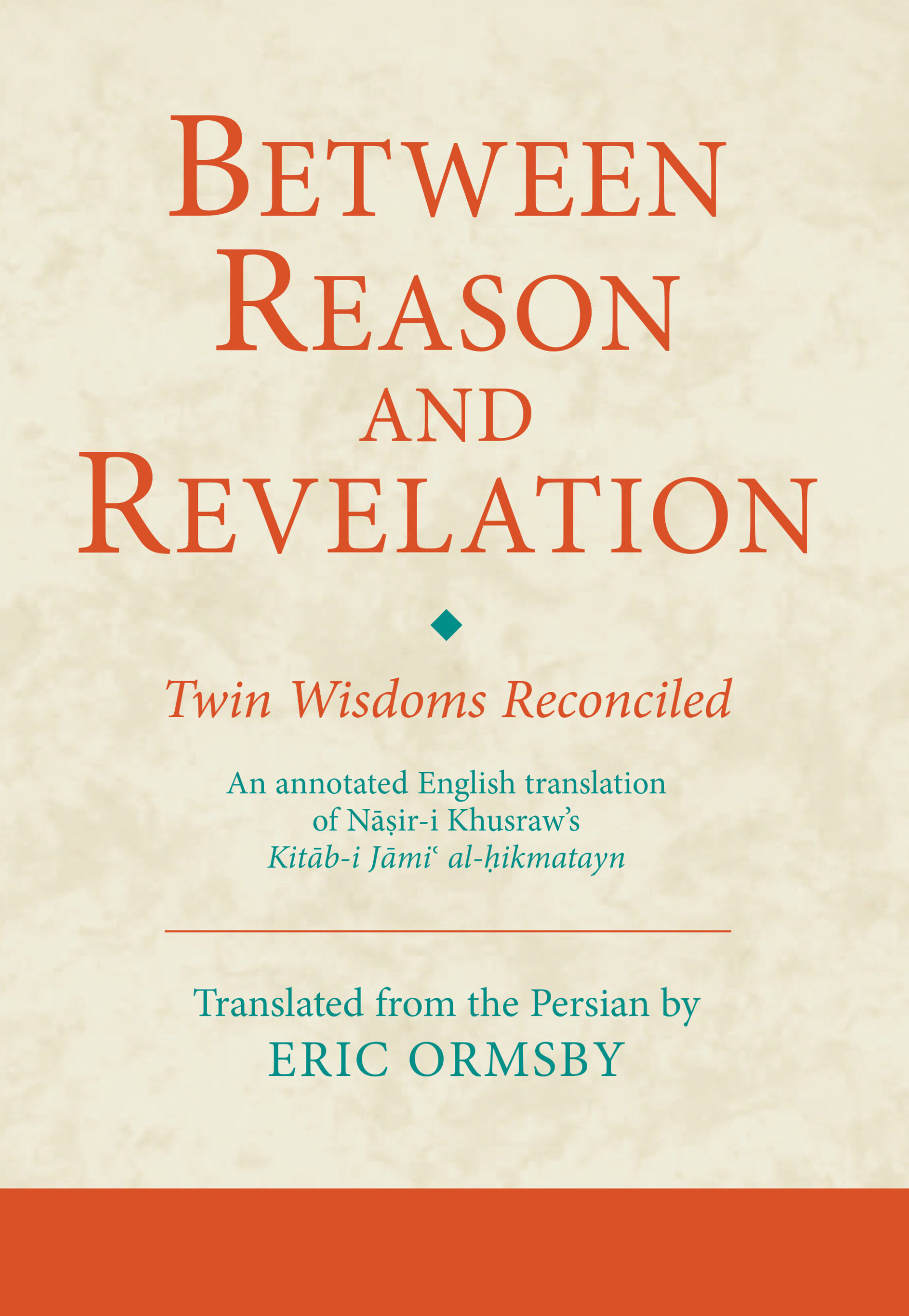This is the first English translation of the last known philosophical work of the great eleventh-century Ismaili thinker, poet, and Fatimid emissary, Nāṣir-i Khusraw. Appointed from Cairo by command of the Fatimid Imam-caliph al-Mustanṣir to serve first as a dāʿīLit. ‘summoner,’ a term for missionary amongst various Muslim communities, especially used among the Ismailis before and during the Fatimid period as well as in the Alamut period of Ismaili…, and then as the ḥujjat, for the entire region of KhurasanThe northeastern region of early Islamic Persia, immediately south of Transoxania and west of Badakhshan. More, he maintained his allegiance to both his mission and his Imam for the rest of his life, even when threatened and driven into exile.
Written during his exile in Badakhshan in the year 1070 CE, Nāṣir-i Khusraw here develops a powerful presentation of both Aristotelian philosophy and Ismaili exegesis, or taʾwīlThe elucidation of the inner or esoteric meaning, bāṭin , from the literal wording or apparent meaning of a text, ritual or religious prescription., and strives to show that they are ultimately in harmony. The work is presented as a learned commentary on a long philosophical poem, written in the previous century and sent to Nasir by the amīr of Badakhshan, ʿAl b. Asad, who copied the poem out in his own hand from memory and asked the poet-philosopher to explicate it.
In doing so, Nasir ranges over a huge span of topics from logic and language to the nature of the physical world, from the spheres of the highest heavens to the plants and animals of the earthly realm, and, most importantly, hidden spiritual realities: the esoteric (bāṭinThe inner or esoteric meaning of a sacred text, ritual or religious prescription, often contrasted with ẓāhir. See also bāṭinī taʾwīl and Bāṭiniyya.) as well as the exoteric (ẓahir) realms. He thus discusses the nature of God, the creation of human beings, and the mysteries concealed in the physical world, itself a reflection of a higher, transcendent realm.
Between Reason and Revelation: Twin Wisdoms Reconciled is an annotated translation of the Persian text prepared by Henry Corbin and Mohammed Muʿin based on the single surviving manuscript of the work, now in the Süleymaniye Mosque Library in Istanbul. It is a work of great philosophical and spiritual insight, which is also a pioneering attempt to tackle difficult intellectual problems in the Persian language; it is at once lucid and lyrical, precise and speculative. Nasir’s influence has been immense as both a poet and a thinker, and the Kitāb-i Jāmiʿ al-Ḥikmatayn is his crowning work.
Illustrations
Abbreviations
Introduction
Translation of Kitāb-i Jāmiʿ al-ḥikmatayn: The Book of Twin Wisdoms Reconciled
Exordium
1. The Reason for the Composition of this Book; its Title
2. The Qaṣīda of Aḥmad b. Ḥasan al-Jurjānī
3. On the Proof of the Creator’s Existence with a Discussion of His Oneness, in Several Discourses
a. On the Creator’s existence
b. The Doctrine of the Dialectical Theologians of the Karramites on Tawhid
c. The Doctrine of the Theologians of the Muʿtazilite School on Tawhid
d. The Doctrine of the Metaphysical Philosophers on Tawhid
4. Aristotle’s Teaching on the Four Parts of Speech
5. On Form, Property, Definition and Description
6. The Definition of ‘I’
7. On the Body, on the Soul, on the Intelligence
8. On the Seven Lights
9. On Eternity, Truth, Pleasure, Life as it Passes, Perfection, and Occultation
10. On Universal Nature
11. On Angel, Pari, Demon
12. A Commentary on ‘One’
13. Of Species and Genus
14. On Happiness and Unhappiness. And on Yesterday, Today, and Tomorrow
15. Properties of Minerals, Animals, and Places
16. On Language, Discourse, Speech
17. On Pre-Eternity, Duration, Eternity, and Eternity without End
18. On the Moon’s Properties
19. On the Necessity of Human Education
20. About ibdā (Origination)
21. On the Emergence of the Species from the Individual
22. On Intellect and Knowledge
23. On the Difference between the Perceiver and the Act of Perception
24. On the Creation of Heaven and Earth
25. On the Circle, the Chicken and the Egg
26. On the Whole and the Part
27. On Saturn, Seed of Spring
28. On the Houses of the Sun and the Moon
29. On the Influence of Auspicious and Ominous Stars on the Soul and the Body
30. On Spiritual Father and Mother
31. On Questions without Answers about the Properties of the Elements
32. On the Poet’s Resolve to Reply to his own Questions
33. That the Learned Man is Alive, the Ignorant Man Dead
34. Conclusion of the Book
Bibliography
Eric Ormsby is Professor and Senior Research Associate at The Institute of Ismaili Studies, London. He was previously Director of Libraries at McGill University in Montreal, and Professor, and later Director, of McGill’s Institute of Islamic Studies, from 1986 until 2005. He is the author of several books, most recently Ghazali: The Revival of Islam (Oxford, 2007), and many articles on Islamic philosophy, theology, and mysticism. From 1975 to 1983, he served as Curator of Islamic Manuscripts at Princeton University and co-authored (with Rudolf Mach) the Handlist of Arabic Manuscripts (New Series) in the Princeton University Library (Princeton, 1987). He is also a frequent contributor of essays and reviews on literature, history, and philosophy, as well as Islamic thought, to such publications as The New York Times Book Review, the Times Literary Supplement, and the New Criterion, among others.

